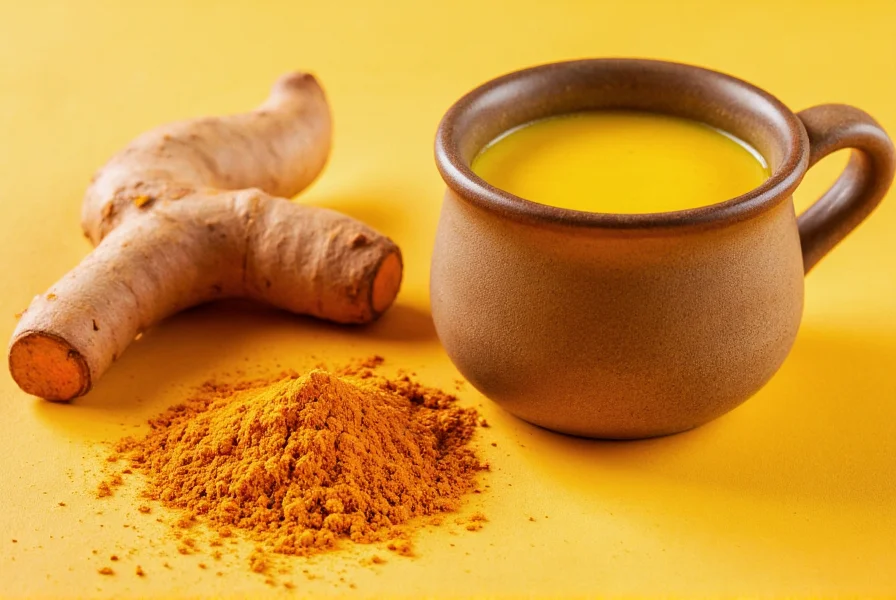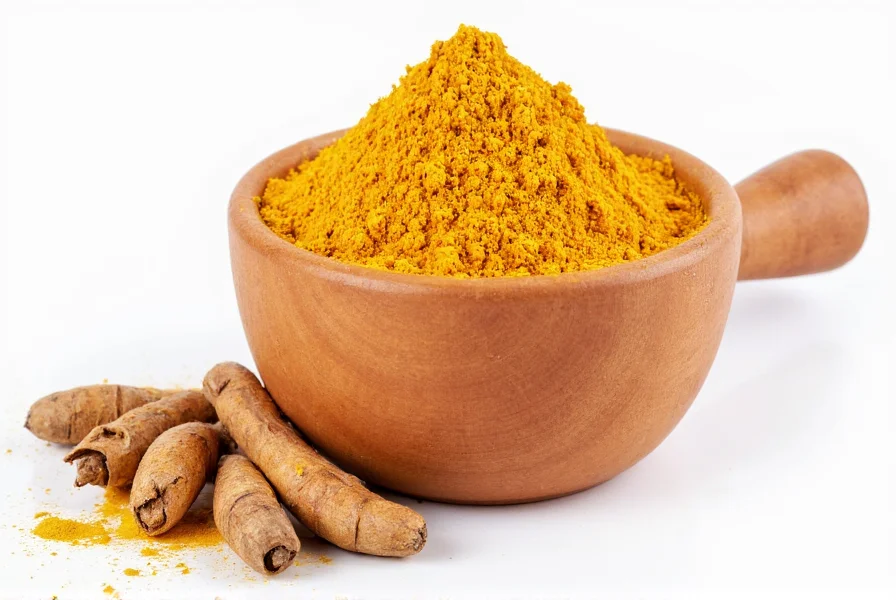For centuries, turmeric has been revered in traditional medicine systems across Asia. Modern science is now validating many of these historical uses while uncovering new potential applications for this golden spice. The vibrant yellow root contains curcuminoids, with curcumin being the most studied compound responsible for turmeric's remarkable health properties.
The Science Behind Turmeric's Active Compound
Curcumin constitutes about 2-8% of most turmeric preparations and serves as the primary bioactive component. This polyphenol demonstrates powerful biological effects, though its therapeutic potential faces a significant challenge: poor bioavailability. When consumed alone, curcumin is rapidly metabolized and eliminated from the body. This explains why traditional preparations often combine turmeric with black pepper (containing piperine) or fats, which can increase curcumin absorption by up to 2,000%.

Evidence-Based Health Benefits of Turmeric
Multiple clinical studies have investigated turmeric's effects on various health conditions. The strongest evidence supports its role in managing inflammation and oxidative stress, which are underlying factors in many chronic diseases.
Powerful Anti-Inflammatory Properties
Chronic inflammation contributes to numerous health conditions including heart disease, metabolic syndrome, and Alzheimer's disease. Curcumin demonstrates comparable effectiveness to some anti-inflammatory medications, but without the same side effect profile. A 2017 review published in Food Science & Nutrition concluded that curcumin significantly reduces inflammatory markers like C-reactive protein and interleukin-6.
Antioxidant Capacity and Cellular Protection
Turmeric benefits extend to cellular protection through its dual action as both an antioxidant and an enhancer of the body's own antioxidant enzymes. This protective effect helps combat oxidative damage linked to aging and various diseases. Research in the Journal of Medicinal Food demonstrated curcumin's ability to neutralize free radicals while stimulating the activity of antioxidant enzymes like superoxide dismutase.
| Health Benefit | Scientific Support Level | Recommended Daily Intake |
|---|---|---|
| Anti-inflammatory effects | Strong clinical evidence | 500-1,500mg curcumin |
| Oxidative stress reduction | Strong laboratory evidence | 500-1,000mg curcumin |
| Joint pain management | Moderate clinical evidence | 500mg curcumin 2-3x daily |
| Cognitive function support | Emerging evidence | 500-1,000mg curcumin |
Joint Health and Arthritis Management
One of the most well-documented turmeric benefits involves joint health. A 2016 study in the Journal of Medicinal Food found that 1,000mg of curcumin daily significantly improved pain and function in osteoarthritis patients compared to placebo. Another trial published in Phytotherapy Research showed curcumin was as effective as ibuprofen for reducing pain and swelling in people with rheumatoid arthritis, but with fewer gastrointestinal side effects.
Cognitive Function and Brain Health
Emerging research suggests turmeric may support brain health through multiple mechanisms. Curcumin increases levels of brain-derived neurotrophic factor (BDNF), a growth hormone that functions in the brain. Low levels of BDNF are associated with depression and Alzheimer's disease. A 2018 study in the American Journal of Geriatric Psychiatry found that curcumin supplementation improved memory and attention in non-demented adults over 18 months.
Practical Considerations for Turmeric Use
Understanding how to maximize turmeric's benefits is crucial for experiencing its potential health effects. The compound's poor bioavailability requires strategic consumption approaches.
Enhancing Turmeric Absorption
To overcome curcumin's limited absorption, consider these evidence-based strategies:
- Combine with black pepper: Piperine in black pepper increases curcumin absorption by up to 2,000%
- Consume with healthy fats: Curcumin is fat-soluble, so pairing with avocado, olive oil, or coconut milk improves uptake
- Heat activation: Gentle cooking enhances curcumin's solubility and effectiveness
- Consider specialized formulations: Some supplements use phospholipid complexes or nanoparticles to improve bioavailability
Dosage Guidelines and Safety
Most clinical trials use 500-2,000mg of curcumin daily, typically divided into multiple doses. The World Health Organization considers 0-3mg per kilogram of body weight daily as acceptable. While turmeric is generally safe as a food spice, high-dose supplements may cause gastrointestinal discomfort in some individuals. People with gallbladder issues, those taking blood thinners, or individuals scheduled for surgery should consult healthcare providers before using therapeutic doses.
Limitations and Research Gaps
Despite promising research, several limitations exist in our current understanding of turmeric benefits. Many studies use highly concentrated curcumin extracts rather than culinary turmeric. The majority of research has been conducted in laboratories or with small participant groups, with larger human trials needed. Additionally, individual responses vary significantly based on genetics, health status, and formulation used.
It's important to maintain realistic expectations about turmeric's effects. While it shows promise as a complementary approach for various conditions, it's not a replacement for medical treatment. The strongest evidence supports its role in managing inflammation and providing antioxidant protection, with more research needed to confirm other potential benefits.
Integrating Turmeric Into Your Wellness Routine
Incorporating turmeric into your daily routine can be both simple and enjoyable. Add 1-2 teaspoons of ground turmeric to soups, stews, or rice dishes. Create a golden milk beverage by simmering turmeric with warm milk (dairy or plant-based), a pinch of black pepper, and a touch of honey. For therapeutic benefits beyond culinary use, consider standardized curcumin supplements providing 500-1,000mg of curcumin with piperine.
Remember that consistency matters more than single high doses. Regular, moderate consumption provides more sustained benefits than occasional large doses. Track how you feel over several weeks to assess whether turmeric provides noticeable benefits for your specific health concerns.
Frequently Asked Questions
How much turmeric should I take daily for health benefits?
For general health benefits, 500-1,000mg of curcumin daily is commonly used in research. Culinary use typically involves 1-3 grams of turmeric powder. Higher therapeutic doses up to 2,000mg of curcumin may be used under professional guidance for specific conditions. Always include black pepper to enhance absorption.
Can turmeric help with arthritis pain?
Yes, multiple studies show turmeric can help manage arthritis symptoms. Research indicates 1,000mg of curcumin daily significantly improves pain and function in osteoarthritis patients. For rheumatoid arthritis, curcumin has demonstrated comparable effectiveness to ibuprofen for reducing pain and swelling, but with fewer gastrointestinal side effects.
Why is black pepper important when consuming turmeric?
Black pepper contains piperine, which inhibits certain metabolic processes in the liver and intestines. This inhibition increases curcumin absorption by up to 2,000% and extends its presence in the bloodstream. Without piperine, most curcumin is rapidly metabolized and eliminated, significantly reducing its potential benefits.
Are there any side effects of taking turmeric supplements?
Turmeric is generally safe when used as a spice in food. At high supplemental doses, some people may experience mild gastrointestinal discomfort. Turmeric may interact with blood thinners and should be avoided before surgery. Those with gallbladder issues should consult a healthcare provider before using therapeutic doses.
How long does it take to notice benefits from turmeric?
Most research studies showing significant benefits use turmeric supplementation for 8-12 weeks. Some people report noticing reduced inflammation or improved joint comfort within 2-4 weeks of consistent daily use. Cognitive benefits may take 3-6 months of regular consumption to become apparent. Individual responses vary based on health status and formulation used.











 浙公网安备
33010002000092号
浙公网安备
33010002000092号 浙B2-20120091-4
浙B2-20120091-4